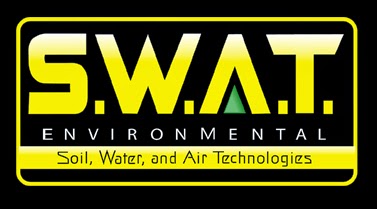Wednesday, June 25, 2014
Raising Radon Awareness
Radon is one of those things that we seldom think about, if ever. Unfortunately, radon is something that can no longer be avoided. If you own a house, are looking to buy one, or are currently renting your residence, it’s in your best interest to consider radon a natural health risk and get the facts straight. It's time we all take a step in the right direction and learn what we can do to protect ourselves and our family members from the dangers of radon gas.
Everyone is exposed to some air pollutants (like radon gas) on an everyday basis - in your home and in your place of business. There is even radon gas in the air we breathe outdoors, but in small enough doses as to leave minimal risk. That's right, the Environmental Protection Agency has stated that the average outdoor radon level is between 0.4pCi/L and 0.7pCi/L. The problem we face in our homes and at work is that exposure of elevated amounts of radon gas over a prolonged period of time can cause serious (and sometimes fatal) health risks, like cancer or lung health issues.
Read more at http://swat-radon.com/index.php/radon-information/112-raising-radon-awareness
Tuesday, June 3, 2014
The Risks of Radon
You could be being exposed to radon as we speak...
Nearly 1 out of every 15 homes in the U.S. is estimated to have elevated radon levels. Elevated levels of radon gas have been found in homes in your state... While radon problems may be more common in some areas, any home may have a problem. The only way to know about your home is to test.
Radon is the #1 cause of Lung Cancer in Non-Smokers...
Radon is a cancer-causing, radioactive gas. You can't see radon. And you can't smell it or taste it. But it may be a problem in your home. Radon is estimated to cause many thousands of deaths each year. That's because when you breathe air containing radon, you can get lung cancer. In fact, the Surgeon General has warned that radon is the second leading cause of lung cancer in the United States today. Only smoking causes more lung cancer deaths.
If you smoke and your home has high radon levels, your risk of lung cancer is especially high.
Testing is quick and easy...
Testing is the only way to know if you and your family are at risk from radon. EPA and the Surgeon General recommend testing all homes below the third floor for radon. Testing is inexpensive and easy — it should only take a few minutes of your time. Millions of Americans have already tested their homes for radon.
All information is from The EPA's Citizens Guide to Radon
Subscribe to:
Comments (Atom)
